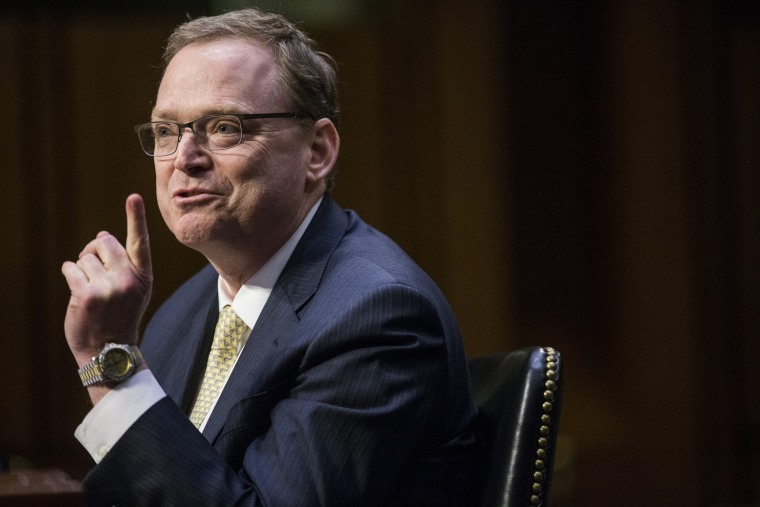Kevin Hassett, an architect of President Donald Trump's "pro-American" proposal to base immigration policy on immigrants' skills, not their family relations, is stepping down as chairman of the White House Council of Economic Advisers, Trump said Sunday night.
Hassett, 57, previously the director of economic policy studies at the American Enterprise Institute, a conservative policy institution, has led the panel of economic advisers since September 2017, making him one of the longer-serving senior members of the Trump administration.
"Kevin Hassett, who has done such a great job for me and the Administration, will be leaving shortly," Trump tweeted. "His very talented replacement will be named as soon as I get back to the U.S."
Trump is scheduled to arrive in London for a three-day state visit on Monday.
Along with two senior White House advisers, Jared Kushner and Stephen Miller, Hassett helped to craft the immigration proposal Trump announced last month, which would prioritize admitting highly skilled migrants like doctors and researchers. Current U.S. policy gives priority to the close relatives of immigrants already in the country.
Under the proposal, immigrants seeking to enter the United States would be graded based on age, proficiency in English, an offer of employment and education levels. Three categories of people would get the highest priority: those with "extraordinary talent," those with professional and specialized vocations and exceptional students.
In an interview on MSNBC last month, Hassett said the plan was intended to make legal immigration easier and more logical and that it wasn't focused on addressing illegal immigration.
"We'd be bringing in higher-wage people who would increase productivity of low-end workers," Hassett said at the time.
"Right now, if you're a kid in Kenya and you want to go to the U.S., you've got to hire a lawyer — it's impossible to figure out," he said. "And then you basically don't have a shot unless you have a family member in the U.S.
"What we want to do is make it so anyone anywhere on Earth can go online, type in stuff about themselves, find out if they can get in right away or what skills they need to develop," he said.

